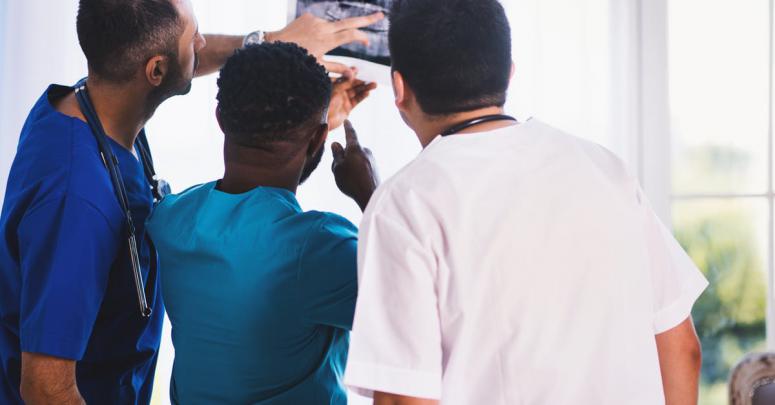
There are many cross-sectoral factors that affect health and wellbeing. As a result diverse disciplines are necessary to create new solutions to our biggest health and equity challenges. For example, oral health has been shown to impact physical, social, emotional, and economic well-being. New evidence is emerging that links diseases of the mouth to other chronic conditions, such as diabetes. Despite that, the divide between oral and other medical care is substantial and has considerable consequences for patients. As with other medical care, factors such as race and ethnicity, gender, age, education level, income, access to medical insurance, and geographic location all impact access to oral health care as and care-seeking behaviors. Given the interconnectedness of oral and overall health, strategies to address social determinants related to physical health can be adapted to address oral health.
Across the nation, health care professionals are making active efforts to overcome barriers to access to oral health care caused by geographic isolation, poverty, insufficient education, and lack of communication skills. AcademyHealth is a proud partner of Clinical Scholars, a leadership development program of the Robert Wood Johnson Foundation, led by the University of North Carolina at Chapel Hill. The program, which supports interdisciplinary teams of clinicians tackling complex health problems in their communities, offers high-level leadership skills through professional coaching, networking and an advanced leadership curriculum. Among program participants are two teams actively tackling issues around poor oral health head on.
The Burden of Poor Oral Health in Georgia:
Clinical scholars Charles Moore M.D., David Reznik D.D.S., and Hope Bussenius D.N.P., APRN, FNP-BC have been working to address existing health disparities in Atlanta, GA for several years. This interdisciplinary group of clinicians have partnered together to expand capacity to provide oral health services to this community and to communities throughout Georgia. The scholars are working to increase the availability of low-cost dental care through building the capacity of a local community center to provide 10,000 oral health visits per year. They are also working to train school nurses and nurse practitioners who work in the neighborhood schools to do an oral exam, provide oral home care instructions, place sealants, and show students how to use the over-the-counter fluoride rinse. The team’s efforts will improve oral health and access to dental care, reduce health care costs as well as reduce the days missed from work and school.
Building a Dental Home Network for Children with Special Health Care Needs:
Jeffrey Karp, D.M.D., M.S., Mark DeRuiter, M.B.A., Ph.D., CCC-A/SLP, and Peter Scal, M.D., M.P.H. are collaborators on work centered around addressing the oral health needs of children with special health care needs (SHCN). They have identified that these children with SHCNs need a dental home where all aspects of their oral health care can be delivered in a comprehensive, continuously accessible, coordinated, culturally competent, interdisciplinary, and family-centered way under the direction of knowledgeable, experienced dental professionals comfortable and competent to address their unique dental treatment needs. With the lack of supply of dental professionals for the job in Minnesota, this interdisciplinary team is working to support and prioritize a dental home across the pediatric life course for all children with SHCNs in their state. The project will begin by engaging in multi-sector collaborations with different stakeholders in the development of a dental home network throughout Minnesota. The plan is to integrate community health workers (CHWs) into an interdisciplinary Project ECHO tele-mentoring and case-based learning network that educates dental professionals and pediatric healthcare providers who are interested in providing a comprehensive and culturally competent dental home for children with SHCNs. The team, key personnel, and the project’s advisory board will identify best practices that emerge and facilitate their use along with the established infrastructure to support improved clinical care in other health disciplines where children with SHCNs face disparities.
If you’re an active health care professional looking to make a real impact in your community, consider applying to the Clinical Scholars program this January. You can learn more about the application process and sign up for the program’s mailing list here.